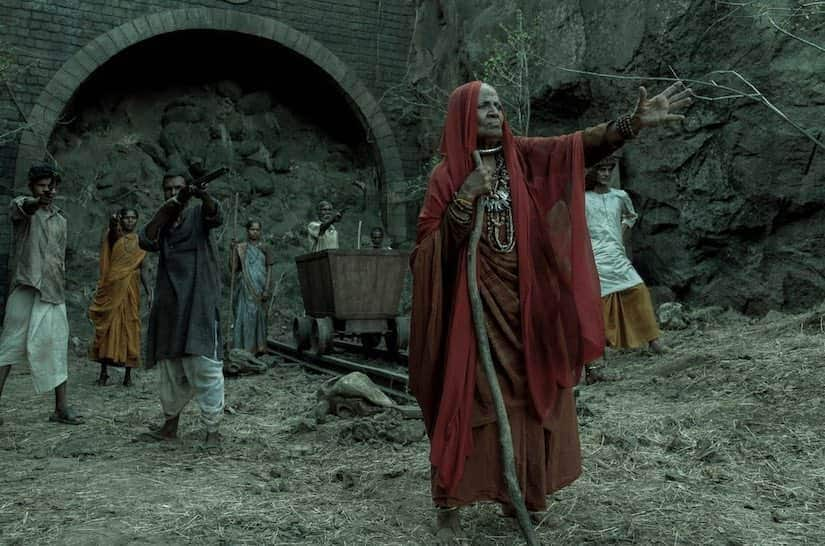By Rachit Raj
Betaal has one of the best opening scenes in an Indian web series. It begins with a bunch of villagers praying in front of a disfigured idol. There is an eerie, repetitive sound of bells banging against each other as the chants of prayers grow collectively. It immediately reminds of you of the world Tumbbad so beautifully constructed and dealt with. The opening credits remind you of the talented Vineet Kumar Singh being the central figure of the series, whom we meet soon after. It is a good, promising beginning and one that promises a new benchmark in the ever-growing Indian horror genre, which has come up with some wonderful home-grown stories that find their roots in myths, mythology, and folklore.
But minutes later you realize that the promise you saw in the opening scene of Betaal is exactly the reason why this Indian zombie show is a massive letdown. Instead of becoming a show that utilizes the Indian backdrop effectively, the show starts trying to be like other movies that have effectively used similar backgrounds.
The plot is mildly interesting. A group of Indian military officers is tasked to clear a tunnel for a highway construction project that the local villagers claim is housed by evil powers that should not be disturbed. It is a classic – albeit revisited to death – conflict between the homegrown villagers and the ignorant urban group who are inebriated by the idea of economic development. Vikram Sirohi (Vineet Kumar Singh) is the commanding officer who is smitten by the idea of a higher position at work that his superior (Suchitra Pillai) has promised him. Accompanying him is Deputy Commander Ahluwalia (Aahana Kumra), who is interestingly the only marginally sane voice in a narrative where you are forced to wonder who is more stupid, the dead or the living.
To place the myth of zombies in India’s colonial history is an interesting idea on paper. We have a John Clive-esque (remember the antagonist of Thugs of Hindostan?) Lieutenant General who along with his regiment forms an army of zombies who were contained in the caves for decades. The problem is in the poor writing of the show. The myth, its origin, its larger aim is never explained to us. The show seems to be more interested in moments than a larger narrative.
So we have zombies with red torch-like eyes, crumbling skin, and fangs. The look of these zombies – while a little over-the-top – is quite competent, as is the production design of the show. But these beyond these zombies crowding against a locked door, crawling upside down on the roof and eating humans like hungry savages, there is very little that the show informs us about regarding their backstory.
This absence of a concrete backstory and hence characterization spills over to the human characters too. Vikram is traumatized by a decision he made in the past, and the show refuses to tell us anything beyond him beyond those occasional glimpses of that incident. Ahluwalia has a prominent scar on the right side of her face, but we are never told about the story or significance behind that scar.
All characters here are one-dimensional and naïve. This is especially sad because Vineet Kumar Singh and Aahana Kumra are talented actors, and the camaraderie they share could have become a deeper, more emotionally poignant part of the story in a better-written show. Same goes with an arc involving a little, spectacled girl. Just a couple of weeks ago Paatal Lok thrived on the twinkle-eyed innocence of dogs. Betaal could have done that with the idea of a girl’s innocence confronted against the dark remains of India’s colonial past, but the show never absorbs itself soothingly enough to reach its full potential.
At four episodes of around forty-five minutes each, Betaal is not a dragged narrative; it is just a narrative that never digs deep enough to find what it wants to be about. Much like Ghoul (which was much better than this, in hindsight), show-runner Patrick Graham is interested in blending politics with horror in Betaal. It might have been an intriguing idea on paper, but the execution focuses too much on jump scares and too little on the larger idea of colonialism and ownership of the land to become worth the three hours of its runtime.







Leave A Comment
You must be logged in to post a comment.